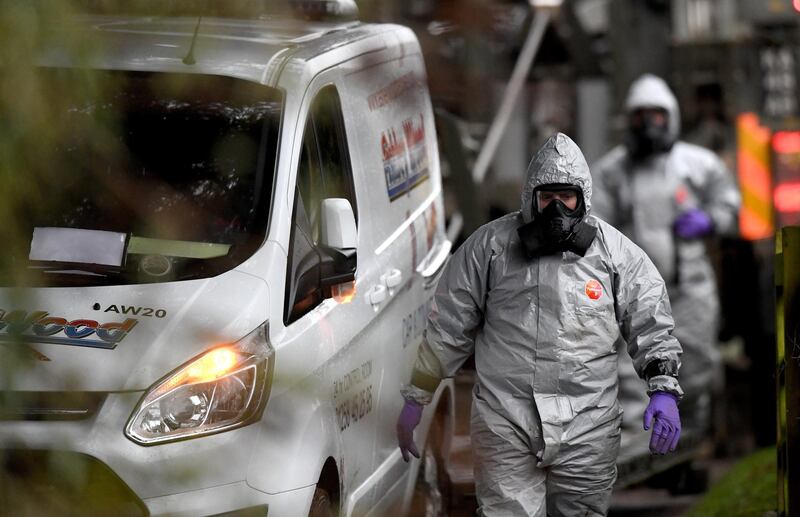Novichok, the family of nerve agents which is believed by the British government to have been used in the assassination attempt against former double agent Sergei Skripal, was first developed by the Russians in the 1970s and 1980s.
The existence of the family of agents – which is believed to consist of three compounds – was first learned of in 1992, when two Russian chemists, Vil Mirzayanov and Lev Fedorov, revealed in a Moscow weekly newspaper secrets about the Soviet chemical weapons programme that had been developed during the Cold War. Mr Mirzayanov was subsequently arrested later that year for divulging state secrets.
He said that Novichok was a fine powder but that it could be used in liquid or gas form. It could be deployed by aerosol, missile, bombs and artillery shells. He also claimed that the Soviets had attempted to disguise the production of Novichok and other nerve agents within the country's agricultural research sector.
Novichok – which translates into "newcomer" – inhibits the breakdown of acetylcholine, an organic chemical which is found in the brain. Build-up of this neurotransmitter causes muscles to contract throughout the body and can lead to the shutdown of the lungs and the respiratory system, as well as the heart. Death comes from suffocation as the lungs fill up with fluid, or from cardiac arrest.
_______________
Read more:
[ Britain’s May says it’s ‘highly likely’ Russia poisoned Sergei Skripal ]
[ Salisbury: the medieval city at the centre of spy assassination bid ]
_______________
It has been suggested that the use of a powdered nerve agent against Mr Skripal would have allowed whoever targeted him and his daughter, who both remain seriously ill, to delay how long it would take for the agent to affect the victims.
Dan Kaszeta, an expert in chemical, biological, radiological and nuclear defence, suggested on Twitter: “This could explain a slower absorption as [that] rate could be controlled by particle size.” This means the Skripals could have been initially exposed to the agent at home, for example, and then spent their day around Salisbury gradually becoming infected.
Mr Kaszeta also pointed to the possibility of longer term nerve damage even if the Skripals survive the attack. He highlighted how “contamination with a powder would be harder to detect with normal chemical warfare detection means” than with a gas, the usual method for dispersing such agents.






